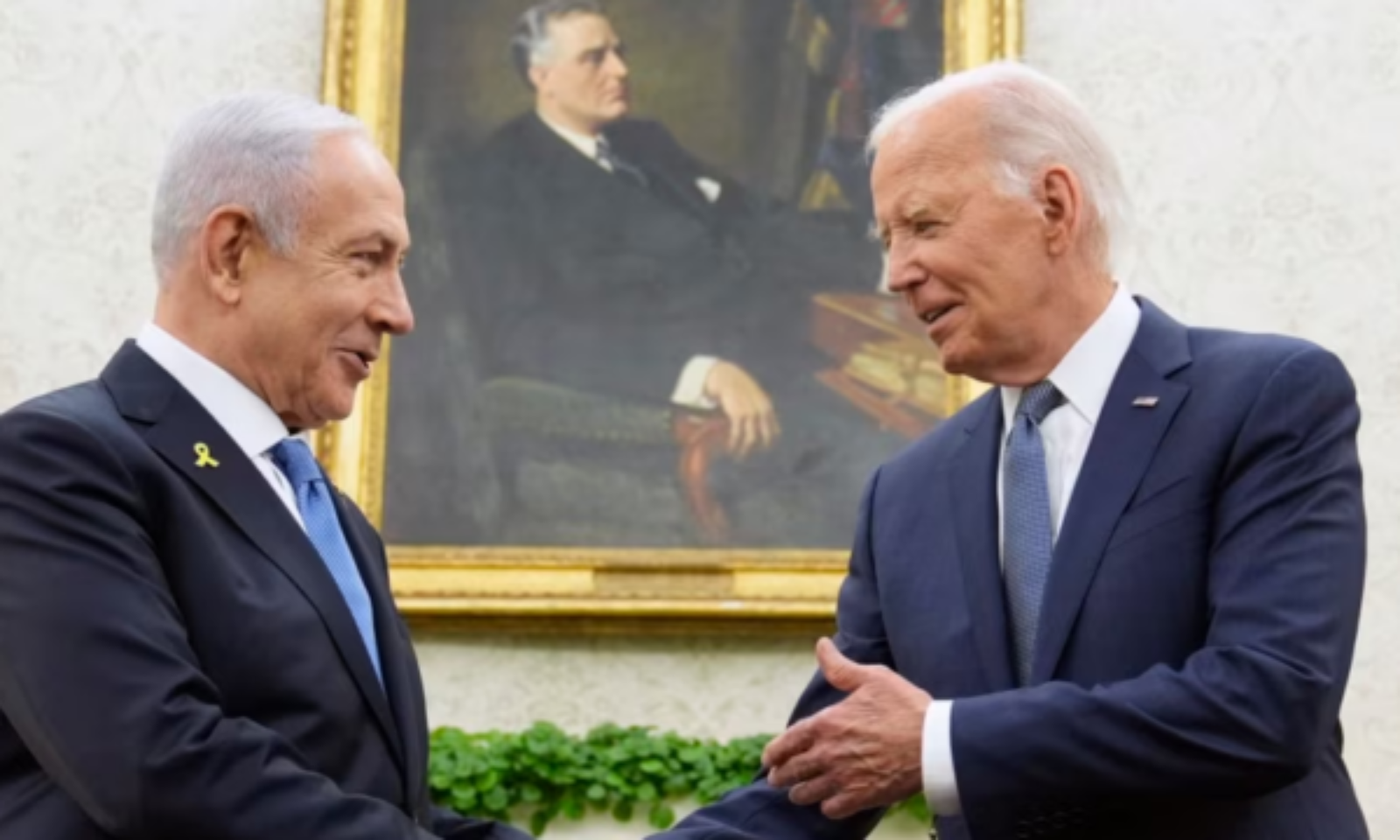The Biden administration believes it has received assurances from Israel that it will not strike Iranian nuclear or oil facilities while planning a response to the Iranian missile attack earlier this month, two U.S. officials said on Tuesday.
The U.S. government also believes that the deployment of an air defense system and about 100 soldiers to operate it in Israel has alleviated some Israeli concerns regarding a possible Iranian counter-response and other security issues.
The Pentagon announced on Sunday the deployment of the THAAD system to help strengthen Israel’s air defense following Iranian ballistic missile attacks against Israel in April and October, stating that the authorization came from President Joe Biden.
However, U.S. officials, who spoke on condition of anonymity, warned that Israel’s assurances are not set in stone and circumstances may change.
Officials noted that Israel has not always fulfilled all its promises in the past, often pursuing domestic policies that conflicted with Washington’s expectations.
The most recent instance was last month when American officials were told by their Israeli counterparts that Prime Minister Benjamin Netanyahu would welcome a U.S.-French initiative for a temporary ceasefire in Lebanon. However, Israel carried out a massive airstrike, eliminating Hezbollah leader Hassan Nasrallah just two days later.
Netanyahu’s office stated in a press release: “We hear the opinions of the United States, but ultimately we will make decisions based on our national interests.”
Meanwhile, Secretary of Defense Lloyd Austin and Secretary of State Antony Blinken warned their Israeli counterparts in a letter on Sunday that Israel must increase the amount of humanitarian aid allowed into Gaza within the next 30 days, or it could jeopardize U.S. arms supplies.
Israel is expected to retaliate against Iran after Tehran attacked Israel with about 180 ballistic missiles on October 1. The United States assisted the Israeli military in eliminating the barrage of Iranian missiles.
The potential for Israeli strikes on critical Iranian strategic targets, such as oil reserves or nuclear facilities, has heightened fears of a regional war.
Israel’s offensive against Hamas militants in Gaza, who are backed by Iran, has expanded with ground intervention in Lebanon against Hezbollah, another tool used by Iran. Hezbollah militants have been attacking Israel since the onset of the conflict in Gaza last October, expressing solidarity with Hamas.
President Biden has stated that he does not support strikes on Iranian nuclear or oil facilities, urging Israel to consider other targets. An attack on Iran’s oil sector could affect the global energy market and raise oil prices ahead of the upcoming U.S. presidential elections.
President Biden spoke by phone with Prime Minister Netanyahu last week for the first time in seven weeks. The National Security Council at the White House did not confirm whether Netanyahu offered Biden any guarantees regarding targets.







